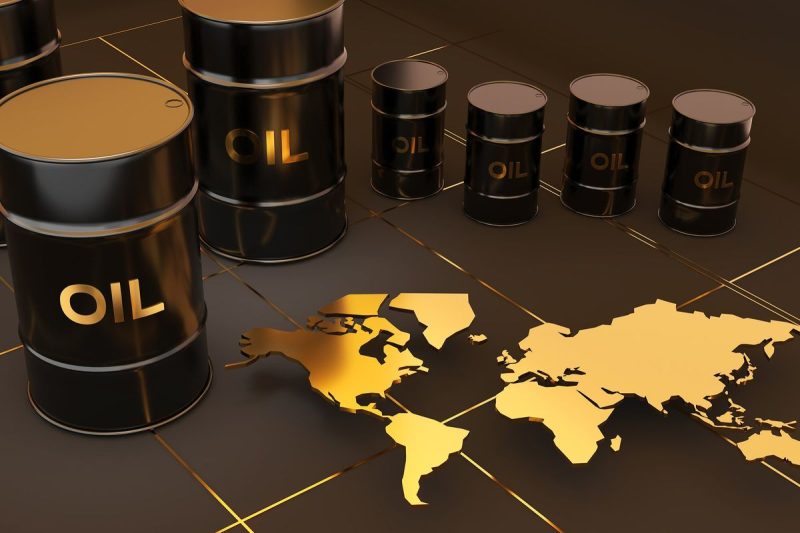1. United States
The United States earns the top spot as the largest oil-producing country in the world. With its vast reserves and advanced drilling technologies, the U.S. has managed to significantly boost its oil production levels, surpassing even traditional oil giants like Saudi Arabia and Russia. The shale revolution has been a game-changer for the U.S. oil industry, enabling the extraction of oil from shale formations that were previously considered uneconomical. States like Texas and North Dakota have become key players in the U.S. oil boom, contributing to the country’s impressive production numbers.
2. Saudi Arabia
Saudi Arabia, long-known for its dominance in the global oil market, continues to be a major player in oil production. The kingdom’s massive reserves and well-developed oil infrastructure have allowed it to maintain a high level of production capacity. As a founding member of the Organisation of the Petroleum Exporting Countries (OPEC), Saudi Arabia plays a crucial role in influencing global oil prices through its production decisions. The country’s strategic position in the oil market makes it a key player in the geopolitics of energy.
3. Russia
Russia holds significant reserves of oil and natural gas, making it one of the world’s leading oil producers. The country’s oil industry benefits from its expansive land area, which hosts diverse oil fields across various regions. Russia’s state-owned oil companies, such as Rosneft and Gazprom, play a central role in the country’s oil production and exports. Despite facing challenges such as fluctuating global oil prices and Western sanctions, Russia continues to maintain a strong position in the global oil market.
4. Canada
Canada boasts substantial oil reserves, particularly in the oil sands of Alberta. The country’s oil production is primarily focused on the extraction of bitumen from the oil sands, which require intensive extraction processes due to their viscous nature. Alberta’s oil sands have significantly contributed to Canada’s oil production levels, making the country a key player in the North American energy market. However, the environmental impacts of oil sands extraction have been a subject of debate, prompting efforts to balance energy development with environmental conservation.
5. China
As one of the world’s largest energy consumers, China has ramped up its oil production to meet growing domestic demand. The country’s oil industry has expanded rapidly in recent decades, driven by economic growth and urbanization. China’s national oil companies, including PetroChina and Sinopec, play a central role in the country’s oil production and refining activities. With a focus on enhancing energy security and reducing dependence on imported oil, China continues to invest in domestic production and exploration efforts.
6. Iraq
Iraq is home to significant oil reserves, particularly in the southern and northern regions of the country. Despite facing challenges such as political instability and security threats, Iraq has managed to boost its oil production levels over the years. The country’s oil industry plays a crucial role in its economy, generating substantial revenue from oil exports. Iraq’s national oil company, the Iraqi Ministry of Oil, oversees the country’s oil production and development activities, aiming to enhance production capacity and attract foreign investment.
7. UAE
The United Arab Emirates (UAE) is a major oil-producing country in the Middle East, known for its vast reserves of crude oil. The country’s oil industry is dominated by the state-owned Abu Dhabi National Oil Company (ADNOC), which manages the UAE’s oil production and exports. Dubai and Abu Dhabi are key hubs for the country’s oil industry, hosting major refineries and export terminals. The UAE plays a significant role in the global oil market, contributing to OPEC’s production agreements and export strategies.
8. Brazil
Brazil has emerged as a significant oil producer in recent years, thanks to its offshore oil discoveries in the pre-salt basins. The country’s oil industry has benefited from substantial investment in deepwater drilling technologies, enabling the extraction of oil from challenging subsalt reservoirs. Brazil’s state-owned oil company, Petrobras, leads the country’s oil production activities and plays a central role in developing its offshore oil fields. Despite facing challenges such as corruption scandals and environmental concerns, Brazil’s oil industry continues to expand its production capacity.
9. Iran
Iran possesses vast oil reserves and has a long history of oil production dating back to the early 20th century. The country’s oil industry plays a central role in its economy, generating significant revenue from oil exports. Iran’s national oil company, the National Iranian Oil Company (NIOC), oversees the country’s oil production and development activities. Despite facing international sanctions and geopolitical tensions, Iran remains a key player in the global oil market, contributing to OPEC’s production strategies and export volumes.
10. Kuwait
Kuwait is a major oil-producing country in the Middle East, known for its substantial reserves of crude oil. The country’s oil industry is dominated by the state-owned Kuwait Petroleum Corporation (KPC), which oversees oil production, refining, and exports. Kuwait’s oil fields, such as Burgan Field, are among the largest in the world and have been key contributors to the country’s oil production levels. As a founding member of OPEC, Kuwait plays a significant role in the organization’s production decisions and export policies.
